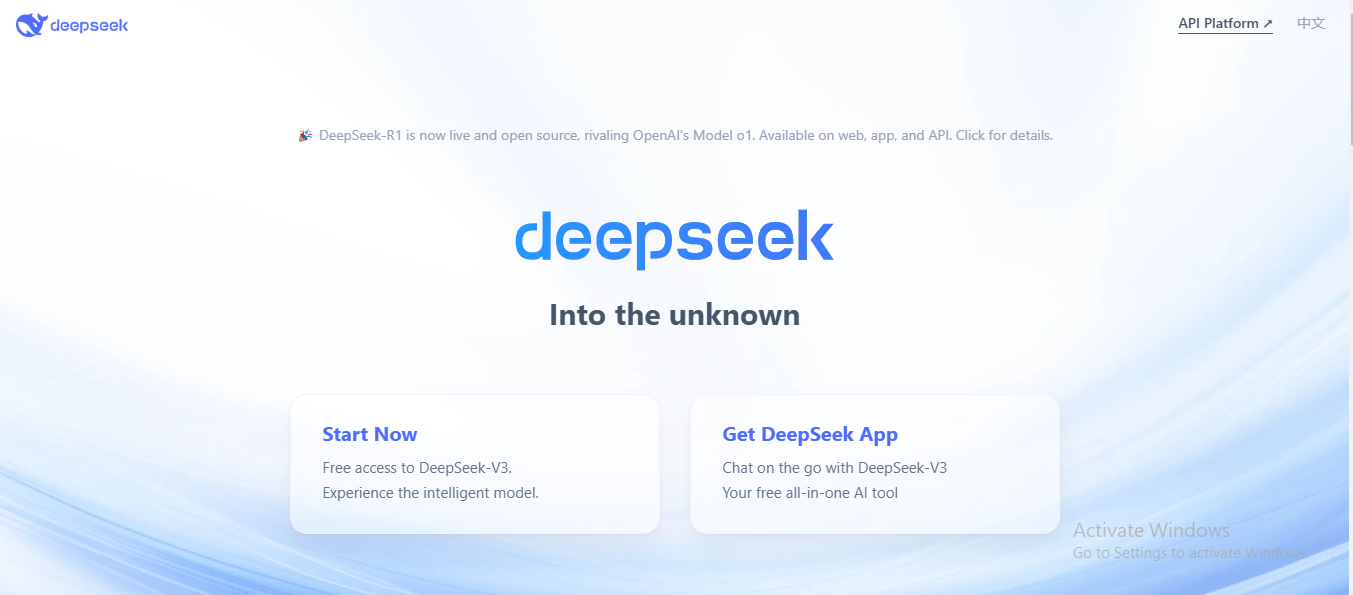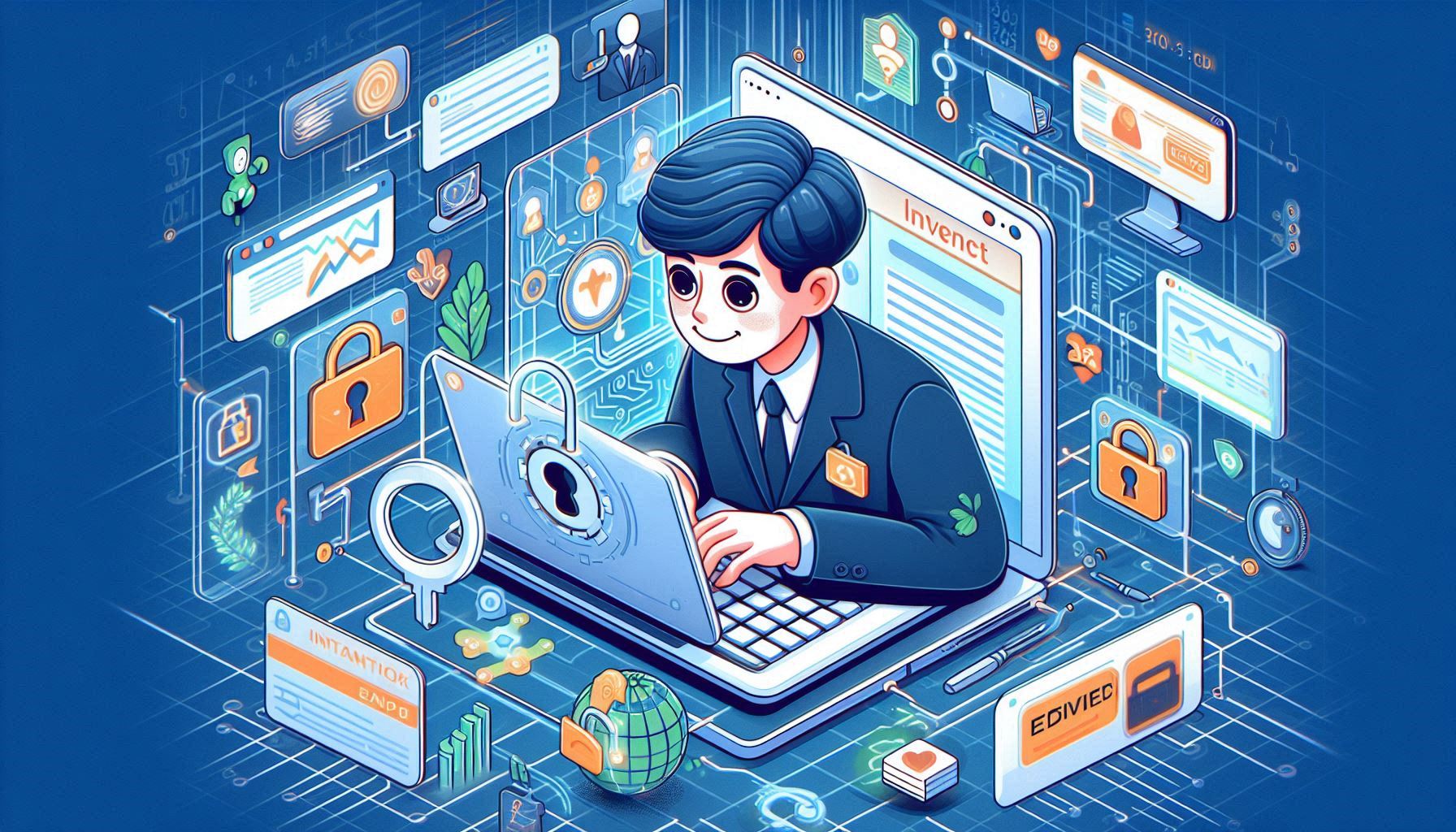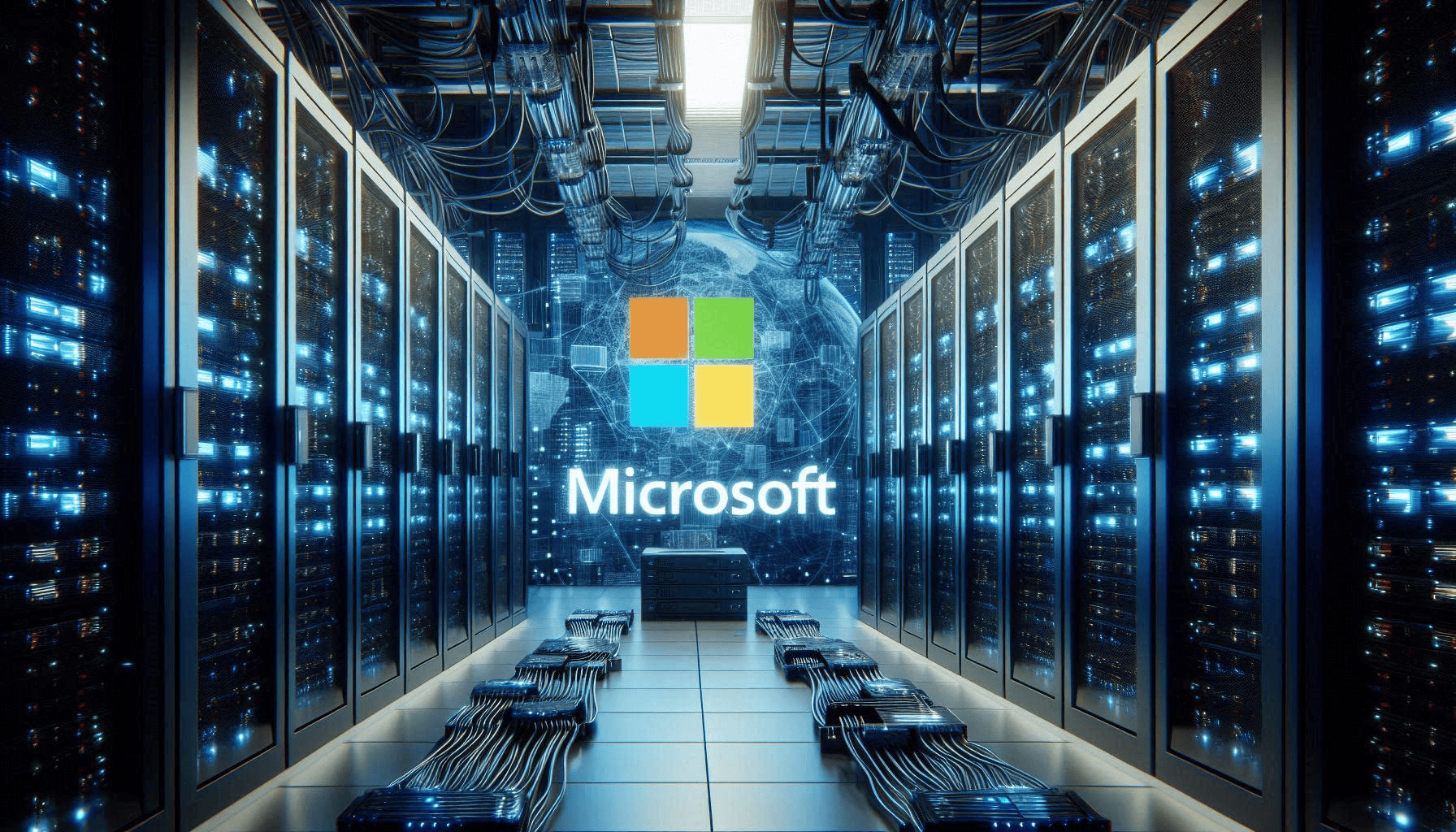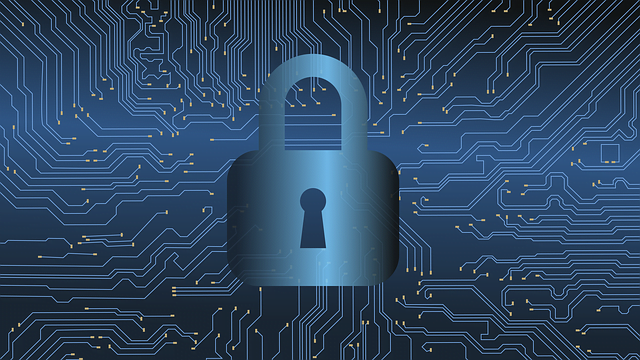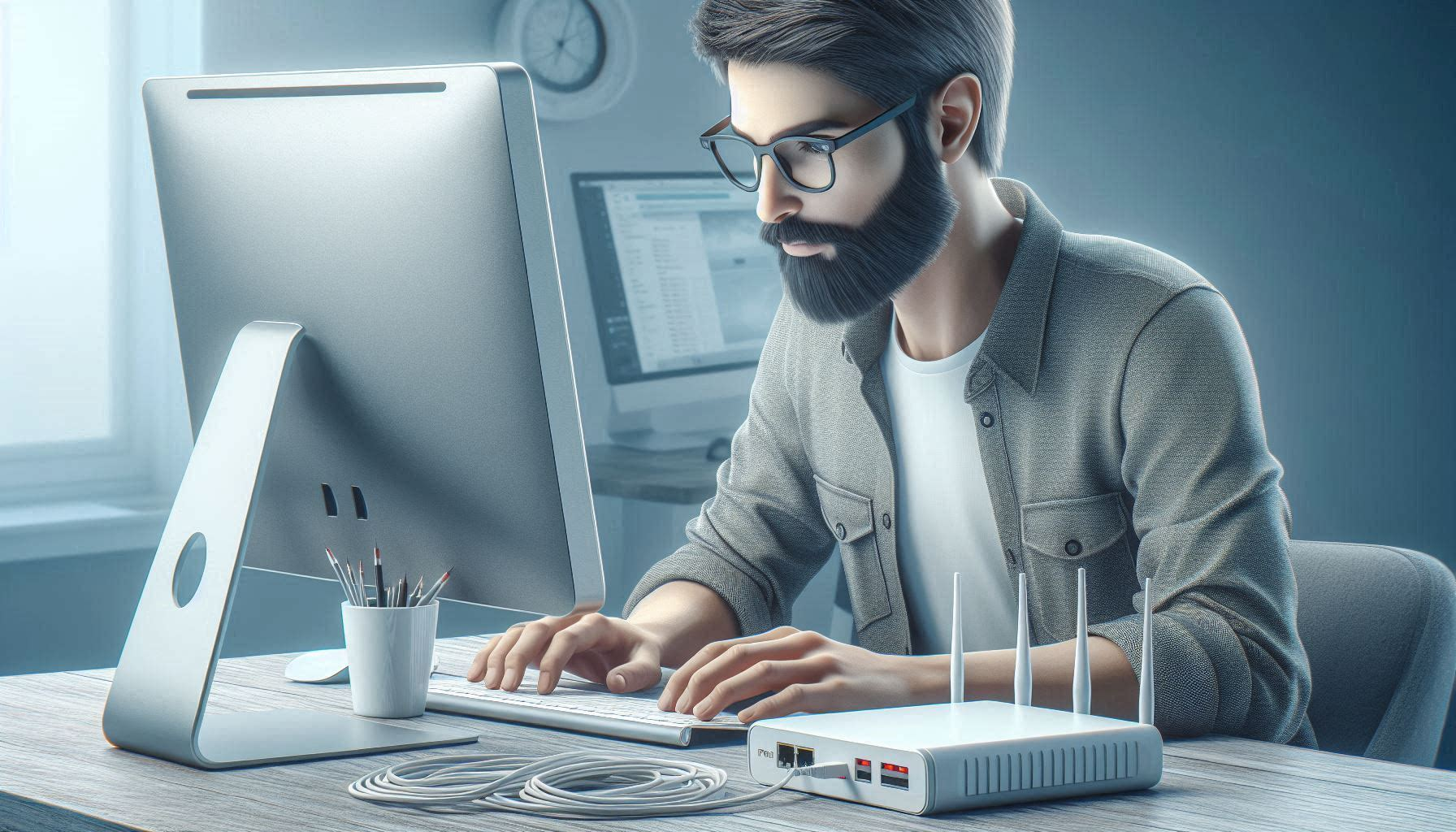Can VPNs Be Tracked by Government and Police?

A genrally question arises, Can VPNs Be Tracked by Government and Police? So the answer is Yes, VPNs can potentially be tracked by government and police agencies, although the extent and ease of tracking can vary. Here’s a detailed look at how and why this can happen:
1. How VPNs Work
- Encryption and Tunneling: VPNs encrypt data and route it through a secure server, making it difficult for outsiders to see the content of the data or the true source.
- IP Masking: VPNs mask users’ IP addresses with the IP address of the VPN server, obscuring their actual location.
2. Methods of Tracking VPNs
- IP Address Correlation: While VPNs mask your IP address, authorities can sometimes correlate IP addresses of VPN servers with user activities. This can be done by monitoring server logs or using network analysis techniques.
- Traffic Analysis: Despite encryption, traffic patterns can sometimes reveal information about the user’s activities. Techniques like deep packet inspection (DPI) can sometimes detect VPN usage.
- Metadata Analysis: Authorities can analyze metadata (such as connection times and data usage patterns) to identify and track VPN users.
3. Challenges for Tracking
- Encryption: The strong encryption used by VPNs makes it difficult for third parties to decrypt and view the actual data being transmitted.
- Obfuscation: Some advanced VPNs use techniques to obfuscate VPN traffic, making it harder to identify as VPN traffic.
4. Legal and Technical Constraints
- VPN Provider Cooperation: Governments may request information from VPN providers. However, many VPNs have strict no-logs policies, meaning they do not keep records of user activity.
- Jurisdiction: VPNs based in privacy-friendly countries are less likely to comply with government data requests, making tracking more difficult.
5. Real-World Examples
- High-Profile Cases: There have been cases where authorities have managed to track individuals using VPNs through various means, including collaborating with VPN providers or exploiting vulnerabilities in VPN software.
- Legal Actions: Some countries have strict laws requiring VPN providers to cooperate with law enforcement, potentially exposing users’ identities.
6. Best Practices for VPN Users
- Choose a Reliable VPN: Select VPN providers with strong privacy policies and a proven track record of protecting user data.
- Use Additional Privacy Tools: Combining VPNs with other privacy tools, such as Tor or secure browsers, can provide enhanced protection.
- Stay Informed: Keep up with developments in VPN technology and tracking methods to better protect your privacy.
While VPNs provide a significant layer of privacy and security, they are not foolproof against tracking by government and police agencies. Understanding the limitations and potential tracking methods can help users make more informed choices and take additional steps to safeguard their online activities.
Government and Law Enforcement Agencies
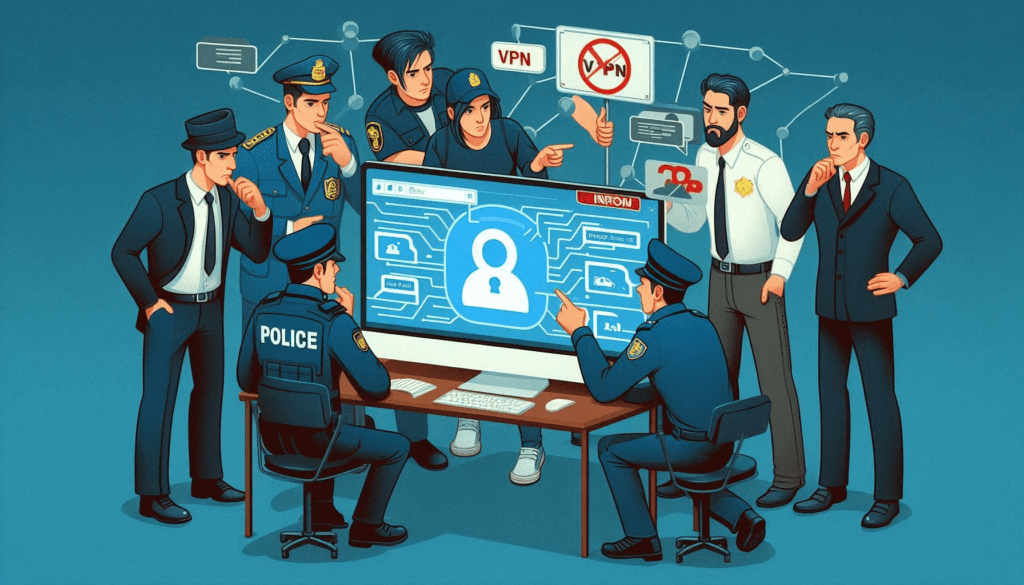
Role of Government and Police in Surveillance
Government and law enforcement agencies play a significant role in surveillance for purposes such as national security, crime prevention, and law enforcement. Their activities often involve monitoring communications, tracking online activities, and gathering intelligence to maintain public safety and uphold the law.
Different Levels of Surveillance
- Local Surveillance
- Scope: Limited to specific cities or regions.
- Techniques: CCTV cameras, local data collection, and monitoring of local internet activity.
- Examples: City-wide surveillance programs, local police investigations.
- National Surveillance
- Scope: Encompasses an entire country.
- Techniques: Nationwide data collection, internet monitoring, and coordination between various national agencies.
- Examples: National security agencies, national data retention laws.
- International Surveillance
- Scope: Crosses national borders and involves multiple countries.
- Techniques: Global data sharing agreements, international intelligence collaborations, and cross-border monitoring.
- Examples: Five Eyes alliance, Interpol, international data sharing treaties.
Legal Frameworks and Regulations
- PATRIOT Act (USA)
- Purpose: Enacted to enhance national security and counter-terrorism efforts.
- Key Provisions: Allows for expanded surveillance capabilities, including the monitoring of electronic communications and access to business records.
- Impact: Increases government authority to collect data on individuals suspected of being involved in terrorism.
- GDPR (General Data Protection Regulation, EU)
- Purpose: Regulates data protection and privacy for individuals within the European Union.
- Key Provisions: Sets strict guidelines on data collection, storage, and sharing, emphasizing user consent and data protection.
- Impact: Limits how organizations can collect and process personal data, including requirements for transparency and accountability.
Techniques for Tracking Online Activities
- IP Address Tracking
- Definition: The process of identifying and monitoring an individual’s IP address to determine their online activities and location.
- Methods: Law enforcement can request IP logs from internet service providers (ISPs) or track IP addresses through server logs.
- Limitations: VPNs and proxy servers can mask IP addresses, making it more challenging to trace the original source.
- Deep Packet Inspection (DPI)
- Definition: A technique used to examine the data part (payload) of network packets as they pass through a monitoring point.
- Methods: DPI can identify and analyze the types of data being transmitted, detect anomalies, and enforce network policies.
- Limitations: Encrypted VPN traffic can be difficult to analyze through DPI, as the content of the data is obscured.
- Metadata Analysis
- Definition: The process of analyzing metadata, which includes information about the data rather than the content itself (e.g., timestamps, sender/receiver details).
- Methods: Metadata can be used to infer patterns of communication, identify relationships between individuals, and track online behavior.
- Limitations: While metadata can provide insights, it does not reveal the actual content of communications and is less precise than direct content analysis.
Understanding these aspects of surveillance helps in comprehending the broader context in which VPNs and other privacy tools operate, highlighting the ongoing challenges in maintaining online privacy and security.
Can VPNs Be Tracked?
How VPN Providers Handle Data
- Logging Policies
- No-Logs Policy: VPN providers with a no-logs policy do not store any records of user activity. This means they do not keep logs of browsing history, connection timestamps, or IP addresses.
- Some Logs Policy: Providers that keep some logs may store minimal data, such as connection times or bandwidth usage, but typically do not retain detailed information about user activity. The extent of logging can vary, and these logs might be retained for a short period or be aggregated to avoid identifying individual users.
- Data Retention Laws in Different Countries
- Countries with Strict Retention Laws: In some countries, VPN providers are required by law to retain data for a specified period and provide it to authorities upon request. For example, countries within the EU may have data retention requirements under certain conditions.
- Privacy-Friendly Jurisdictions: VPN providers based in countries with strong privacy protections may not be subject to such data retention laws, allowing them to maintain stricter no-logs policies and better protect user privacy.
Technical Limitations and Challenges
- Difficulty in Identifying VPN Traffic
- Encryption: VPN traffic is encrypted, making it challenging to discern the content and origin of the data being transmitted. This encryption obscures the user’s actual IP address and the nature of their online activities.
- Obfuscation: Some VPNs use obfuscation technologies to disguise VPN traffic as regular web traffic, further complicating efforts to identify and monitor VPN usage.
- Encryption and Obfuscation Technologies
- Strong Encryption Protocols: VPNs use robust encryption protocols (e.g., AES-256) that secure data and make it difficult for third parties to decrypt or access the contents.
- Traffic Obfuscation: Techniques such as stealth modes or VPN over Tor can make VPN traffic harder to detect and differentiate from regular traffic, adding an extra layer of privacy protection.
Possible Methods of Detection
- IP Address Correlation
- VPN Server IPs: Authorities might monitor IP addresses known to be associated with VPN servers. If they can link these IPs to suspicious activities, they might infer that a VPN is being used.
- Leakage: In some cases, users might experience IP leaks due to VPN failures or misconfigurations, inadvertently revealing their real IP address.
- Traffic Analysis and Pattern Recognition
- Traffic Patterns: By analyzing network traffic patterns, such as the timing and volume of data packets, authorities can sometimes detect anomalies indicative of VPN usage.
- Data Timing and Size: Certain patterns, such as consistent data sizes or traffic spikes, might suggest VPN usage, especially if these patterns deviate from typical browsing behaviors.
- Use of Advanced Forensic Tools
- Forensic Analysis: Specialized tools and techniques can analyze traffic metadata, network behavior, and other indicators to detect and potentially identify VPN usage.
- Collaboration with ISPs: Law enforcement agencies might work with ISPs to track VPN traffic or analyze data flows that cross national or international borders.
While VPNs significantly enhance online privacy and security, they are not entirely immune to tracking. The effectiveness of VPNs in protecting user privacy depends on factors such as the provider’s logging policies, jurisdictional data retention laws, and the technical measures employed to obfuscate and encrypt traffic. Understanding these elements can help users make informed decisions about their privacy and security practices.
Legal and Ethical Considerations
Legal Requirements for VPN Providers
- Obligations Under Various Jurisdictions
- Data Retention Laws: In some countries, VPN providers are required to retain user data and make it available to law enforcement agencies upon request. For example, the European Union’s Data Retention Directive previously required ISPs to store data, though it was ruled unconstitutional in 2014.
- Compliance with Local Regulations: VPN providers must comply with local laws, which may include data retention, surveillance, or reporting requirements. These laws can vary widely depending on the country.
- Cases Where VPN Providers Have Been Compelled to Hand Over Data
- Legal Orders and Requests: VPN providers in certain jurisdictions have received court orders or legal requests to hand over user data. For instance, in countries with strong anti-terrorism laws, VPN providers may be required to assist in investigations by providing data logs or user information.
- Notable Incidents: There have been instances where VPN providers have been forced to cooperate with government authorities, often resulting in legal challenges or scrutiny from privacy advocates.
Ethical Considerations
- Balancing Privacy and Security
- Privacy vs. Public Safety: The ethical debate often centers around balancing individual privacy with the need for public safety and national security. Governments may argue that surveillance is necessary to prevent crime and terrorism, while privacy advocates emphasize the importance of protecting personal freedoms.
- Transparency: Ethical considerations also include the transparency of VPN providers regarding their policies and how they handle data requests. Providers must navigate the tension between cooperating with authorities and maintaining user trust.
- The Role of VPNs in Protecting Human Rights
- Privacy Rights: VPNs play a crucial role in safeguarding privacy rights by enabling individuals to access information and communicate without undue surveillance or censorship.
- Freedom of Expression: In countries with oppressive regimes, VPNs can help individuals access information and express themselves freely by bypassing government censorship and monitoring.
Case Studies and Real-World Examples
High-Profile Cases Involving VPNs
- Notable Incidents Where VPNs Were Targeted
- The Dutch VPN Case: In 2018, a Dutch VPN provider faced legal challenges after being ordered to provide user data as part of a criminal investigation. The case highlighted the tension between data protection and legal obligations.
- Russian VPN Crackdown: In Russia, authorities have implemented strict regulations on VPN providers, requiring them to block access to websites deemed undesirable by the government. VPN providers operating in Russia have faced significant challenges in complying with these regulations.
- Outcomes and Impacts on Privacy and Law Enforcement
- Privacy Impact: Cases where VPN providers are compelled to hand over data can lead to significant privacy breaches, affecting users who rely on VPNs for protection. These incidents can erode trust in VPN services and raise concerns about data security.
- Law Enforcement: For law enforcement, accessing data from VPN providers can be a valuable tool for investigations. However, the effectiveness of such measures depends on the provider’s cooperation and the extent of data available. The impact on privacy rights often leads to public debate and scrutiny.
Understanding these legal and ethical considerations, along with real-world examples, provides valuable insights into the complexities surrounding VPN use and its implications for privacy and security.
Best Practices for VPN Users
Choosing a Reliable VPN Provider
- Privacy Policies
- No-Logs Policy: Choose a VPN provider with a strict no-logs policy to ensure that your browsing activity is not recorded or stored. Review the provider’s privacy policy carefully to understand what data, if any, is collected and retained.
- Transparency: Look for providers that are transparent about their data handling practices and have a clear and accessible privacy policy.
- Server Locations
- Geographic Coverage: Select a VPN with a wide range of server locations to ensure you have access to content from different regions and can bypass geo-restrictions effectively.
- Server Quality: Consider the quality and speed of servers in your preferred locations. Some providers offer specialized servers for activities like streaming or torrenting.
- Encryption Standards
- Encryption Protocols: Ensure the VPN uses strong encryption protocols such as AES-256. Strong encryption helps protect your data from being intercepted and decrypted by third parties.
- Additional Security Features: Look for additional security features such as a kill switch, which disconnects your internet if the VPN connection drops, and DNS leak protection.
Enhancing Privacy While Using a VPN
- Combining VPNs with Other Privacy Tools
- Tor (The Onion Router): Using Tor in conjunction with a VPN can add an extra layer of anonymity. Tor routes your traffic through multiple nodes, making it more difficult to trace your online activities.
- Secure Browsers: Use privacy-focused browsers such as Brave or Firefox with enhanced privacy settings. These browsers offer additional protections against tracking and data collection.
- Regularly Updating and Auditing VPN Usage
- Software Updates: Keep your VPN client and related software up to date to benefit from the latest security patches and features. Regular updates help protect against vulnerabilities and security threats.
- Auditing VPN Usage: Periodically review your VPN usage to ensure it meets your privacy needs. Check for any changes in the provider’s policies, and assess whether your current VPN continues to offer adequate protection.
Additional Best Practices
- Use Strong Authentication: Enable two-factor authentication (2FA) for your VPN account to add an extra layer of security.
- Be Cautious with Public Wi-Fi: Always use your VPN when connecting to public Wi-Fi networks to protect your data from potential eavesdropping.
- Avoid Free VPNs: Be cautious with free VPN services, as they may have weaker privacy protections, and some may monetize their service through data collection.
By following these best practices, you can maximize the effectiveness of your VPN and enhance your overall online privacy and security.
Conclusion
Summary of Key Points
- VPN Functionality: VPNs are designed to enhance online privacy and security by encrypting data and masking IP addresses. However, they are not entirely immune to tracking.
- Tracking Techniques: Governments and law enforcement agencies may use various methods to track VPNs, including IP address correlation, traffic analysis, and advanced forensic tools.
- Legal and Ethical Considerations: VPN providers may face legal obligations to retain and provide user data based on local laws. Ethical considerations involve balancing privacy with security and understanding the role of VPNs in protecting human rights.
- Best Practices: To ensure optimal privacy, users should choose reliable VPN providers with strong privacy policies, combine VPNs with other privacy tools, and regularly update and audit their VPN usage.
Final Thoughts
- Future Outlook: As technology and tracking methods continue to evolve, VPN technology will also advance to address new challenges. Innovations may include enhanced encryption techniques, improved obfuscation methods, and greater user control over privacy settings.
- Staying Informed: The landscape of online privacy is dynamic, with new threats and technologies emerging regularly. It is crucial for users to stay informed about the latest developments in VPN technology and privacy practices.
Encouragement for readers to stay proactive about their online privacy includes regularly reviewing their security practices, choosing reputable VPN services, and combining various tools and strategies to protect their digital footprint. By being vigilant and informed, users can better safeguard their online activities against potential threats and maintain their privacy.
Also read: Does My Internet Provider See My Search History with a VPN?
Also read: Do hackers use VPNs to hide themselves like everybody else?
Additional Resources
Links to Related Articles
- Privacy Guides
- The Ultimate Guide to Online Privacy – A comprehensive guide to protecting your privacy online.
- How to Secure Your Digital Life – Tips and strategies for enhancing your overall digital security.
- VPN Reviews
- Top VPN Providers for 2024 – An overview and review of the best VPN services available this year.
- VPN Comparison: Features, Performance, and Privacy – A detailed comparison of popular VPNs to help you choose the right one for your needs.
- Legal Information
- Understanding Data Retention Laws – An article explaining data retention laws across different jurisdictions.
- Privacy Laws and Regulations Around the World – A guide to global privacy regulations and their impact on VPN usage.
Loading newsletter form...

